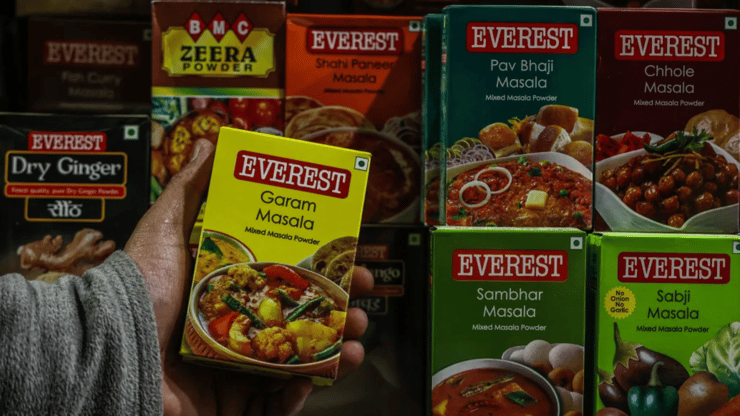UK Food Watchdog Tightens Measures On Indian Spice Imports

Britain's Food Standards Agency (FSA) has announced heightened control measures on all spice imports from India, becoming the first to increase scrutiny on Indian spices following contamination allegations against two major brands NDTV reported. This move comes in response to global concerns raised by food regulators after Hong Kong suspended sales of three spice blends by MDH and one by Everest, citing high levels of the cancer-causing pesticide ethylene oxide.
Singapore has also ordered a recall of the Everest mix, and other countries such as New Zealand, the United States, India, and Australia have indicated they are investigating issues related to these two brands. Despite assurances from MDH and Everest, asserting the safety of their products for consumption, the FSA has taken the most stringent action, applying extra control measures for pesticide residues in all Indian spices, including ethylene oxide.
James Cooper, Deputy Director of Food Policy at the FSA, stated, "The use of ethylene oxide is not allowed here, and maximum residue levels are in place for herbs and spices." The exact steps of these control measures have not been disclosed by the agency.
India's Spices Board, responsible for regulating exports, has not yet commented on the matter. India holds the title of the largest exporter, consumer, and producer of spices globally. In 2022, Britain imported $128 million worth of spices, with India accounting for nearly $23 million, according to data from the Observatory of Economic Complexity website.
MDH and Everest export their products to various regions, including the U.S., Europe, South East Asia, the Middle East, and Australia. While Indian regulators have conducted testing on all spice products and inspected samples from MDH and Everest, no public results have been released.
An analysis of U.S. FDA data by Reuters found that since 2021, MDH has had an average of 14.5% of its U.S. shipments rejected due to the presence of the bacteria salmonella. The Canadian Food Inspection Agency stated it was aware of the concerns regarding MDH and Everest's products and is "continuing to monitor the situation," but currently has no evidence to suggest that products in the Canadian market are affected.





